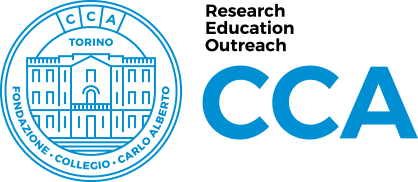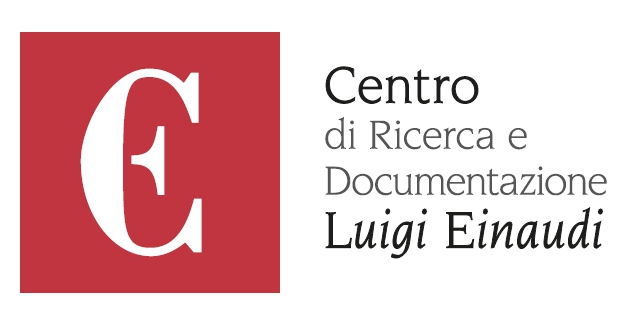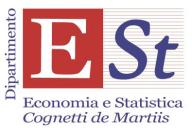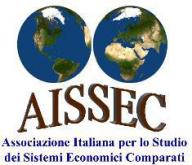by Antonio Savoia[*]
Tax revenues and political institutions placing constraints on the executive power may reinforce each other over time and this may also bring a shift in the composition of revenues. To test these hypotheses, we use historical cross-country data covering 31 countries for 1800– 2012. Results confirm that executive constraints and tax revenues tend to co-evolve in the long run, particularly when direct taxes and broad-based taxation are considered. Moreover long-run causality runs mostly from executive constraints to taxation. Findings link SDGs 17 (Target 1 strengthen domestic resource mobilization) with SDG 16 (promoting inclusive and accountable institutions), showing that they may work in synergy.
Taxation is central to financing state activities. It is a fundamental part of how states provide crucial public goods and services, such as universal education, public health systems, and an effective administration of justice. Countries’ ability of generating resources for development spending is now part of Sustainable Development Goal 17, where Target 17.1 requires strengthening domestic resource mobilisation (and its progress is measured using Total government revenue as a proportion of GDP). This choice was a timely one. The SDGs agenda is much more ambitious than that of the MDGs (Asadullah etb al., 2016). Since foreign aid has been stagnant, pursuing this agenda will require genuine commitment from national elites (Dercon, 2022), as well as significant stepping up of governments’ organizational efforts and, above all, it will require increased financial resources.
But how do states learn to tax? This requires understanding the process of transformation of public finance institutions. The formation and organizational performance of national revenue administrations depends on a number of structural factors, including the economic and historical conditions that help to consolidate taxation. Here we focus on the political motives for raising revenues.
Under which conditions elites will choose to develop tax systems? The presence of political institutions placing limits on the executive power provides stronger incentives for incumbent groups to invest in tax systems, because constraints on the executive will diminish the concern that the government is run in the interests of a narrow group. Such mechanisms may include various kinds of accountability mechanisms for the state leadership, including constitutional constraints on executive power, separation of powers, electoral rules, independent judiciary. For example, an effective parliament, that is independent from the executive, can regularly oversee the state’s budget, including authority over taxation and the right to audit previous government spending. However, states that raise significant revenues may in turn face stronger demands for accountability and representation mechanisms that constrain the use of such resources. This is because citizens enter a fiscal contract with the state, which involves an exchange of tax revenues for goods and services as they have more control over its action. This implies that there may be a feedback effect from tax revenues to political institutions placing limits on the executive power. As an increase in the amount of revenues levied comes with greater demand for scrutiny over the government actions, one can hypothesize also that increased tax revenues could in turn reinforce executive constraints, as taxpayers will demand greater accountability from the ruler. Tax revenues and executive constraints may reinforce each other over time and so co-evolve in the long run.
Existing empirical literature has not investigated this yet. In a recent paper (Savoia et al., 2022), we use panel time series methods and recent historical cross-country data from the V-Dem project (Coppedge et al. 2020) and Andersson and Brambor (2019), covering 31 countries over the 1800-2012 period. Allowing for different forms of country specific heterogeneity and cross-sectional dependence, the analysis offers three main findings. First, we find that executive constraints, whether they are judicial or legislative, and tax revenues are cointegrated: there is a long-run relationship between the two. While in the short-run executive constraints or tax revenues can drift apart, this will be temporary because in the long run they tend to co-evolve. We also find that the existence and nature of a long run relationship may be mainly related to the emergence of broad-based taxation. Evidence of cointegration is strongest for variables capturing the share of revenues from direct taxes, such as the income tax, much weaker for indirect tax revenues, and absent for trade taxes. Moreover, we find evidence that long-run causality runs mainly (albeit not exclusively) from executive constraints to taxation. This is most evident for direct taxes.
These findings are policy relevant. With respect to SDG17 Target 1, our findings imply that institutions providing effective checks and balances on the executive power can be an important political condition for progress on this target. Much donor support for revenue administrations development tends to focus on technocratic solutions, such as upgrading the infrastructures or reforming recruitment practices in the public sector. While this is important, our findings suggest that a technical fix alone may not be enough, if political institutions providing the incentive to invest in fiscal capacity are missing. Our findings are also relevant to promoting “effective, accountable and transparent institutions at all levels”, as SDG16 Target 16.6 requires. The emergence of revenues from broad-based taxation reinforces institutions keeping state leadership accountable, contributing to their long-term consolidation. Hence, the effect of mobilising domestic revenues can have benefits that go beyond the immediate positive economic effect on public finance. If the intent of the Sustainable Development Goals was that different targets should work in synergy, this is one case where this may succeed.
References
Andersson, Per F., and Brambor, T. (2019). “Financing the State: Government Tax Revenue from 1800 to 2012. Version 2.0“. Lund: Lund University.
Asadullah, M.N., Amarasuriya, H., Konte, M., Khan, M.R., Diamint, R., (2016). Jeffrey Sachs on meeting the Sustainable Development Goals – ‘we need a victory of ideas’ The Conversation. https://theconversation.com/jeffrey-sachs-on-meeting-the-sustainable-development-goals-we-need-a-victory-of-ideas-66839
Coppedge, M., Gerring, J., Knutsen, C.H., Lindberg, S.I., Teorell, J., Altman, D., Bernhard, M., Fish, M.S., Glynn, A., Hicken, A., Luhrmann, A., Marquardt, K.L., McMann, K., Paxton, P., Pemstein, D., Seim, B., Sigman, R., Skaaning, S.E., Staton, J., Wilson, S., Cornell, A., Alizada, N., Gastaldi, L., Gjerløw, H., Hindle, G., Ilchenko, N., Maxwell, L., Mechkova, V., Medzihorsky, J., von Römer, J., Sundström, A., Tzelgov, E., Wang, Y., Wig, T., Ziblatt, D. (2020). ”V-Dem [Country–Year/Country–Date] Dataset v10”. Varieties of Democracy (V-Dem) Project. https://doi.org/10.23696/vdemds20.
Dercon, S. (2022). Gambling on development: Why some countries win and others lose. Oxford University Press.
Savoia, A., Sen, K., Tagem, A.M.E. (2022). Constraints On The Executive And Tax Revenues In The Long Run, WIDER Working Paper 2022/4 Helsinki: UNU-WIDER.
[*] University of Manchester and UNU-WIDER (https://www.wider.unu.edu/expert/antonio-savoia).









